Reflecting on my leadership journey, which spans over two decades in the talent development and human resources field, I realize that my management style has always been deeply rooted in a genuine love and concern for people. From a young age, stepping forward to help others was an instinct, a trait that seamlessly transitioned into my professional life. As an executive in talent management, I have consistently prioritized creating environments where individuals feel valued and respected. This genuine care has become the cornerstone of my leadership approach, underscoring my belief that how we treat our people directly impacts their performance and willingness to go the extra mile.
In this article, we will explore the key elements that have shaped my human-centered leadership philosophy, discuss the importance of emotional intelligence, and highlight strategies for developing leaders who prioritize human connection. These principles not only drive individual and team success but also foster a culture of retention and resilience in an ever-evolving workplace.
The impact of emotional intelligence and respect
Early in my career, I discovered that treating people with respect and understanding significantly influences team performance. By fostering an environment where individuals feel valued, I found that they are more motivated and engaged, especially during challenging times. This mutual respect and relationship-building have been my “secret sauce” for creating exceptional teams.
Emotional intelligence (EQ) has played a critical role in my leadership style. Self-awareness and understanding the impact of my actions on others have been crucial. This EQ-driven approach allows me to connect with my team on a deeper level, ensuring that even critical feedback is delivered empathetically, which fosters a supportive atmosphere.
A study by TalentSmart found that EQ accounts for 58% of performance in all job types and that 90% of top performers have high EQ. Recognizing this, I have made it a priority to develop my own EQ and to encourage my team members to do the same. This involves regular self-reflection, seeking feedback, and being open to change. By continually working on these skills, I have been able to create a culture of trust and collaboration, where team members feel empowered to contribute their best work. This focus on emotional intelligence has not only improved team dynamics but has also led to higher productivity and job satisfaction.
Human-centric leadership during and beyond the pandemic
The COVID-19 pandemic underscored the need for a more human-centric approach to leadership. As work and home lives blurred, acknowledging personal struggles became essential. Leaders had to adapt quickly, showing increased empathy and understanding to support their teams through unprecedented times. This period highlighted the importance of maintaining a human-centric approach, not just in crisis but as a core element of leadership.
During this time, in my role in learning and development, I focused on empowering other managers to develop their own EQ. This was not just a temporary adjustment, but a crucial evolution in leadership style. By helping managers cultivate skills such as active listening, empathy, and genuine concern for employee well-being, we aimed to create a more resilient and supportive work environment. These skills are essential not only during challenging periods but also in fostering long-term organizational success.
Retention through human connection
Beyond compensation, retention is driven by human connection. Employees stay with organizations where they feel valued and understood by their managers. Creating a psychologically safe environment, where employees can voice their opinions, take risks, and learn from failures without fear of retribution, is essential. This kind of supportive environment fosters trust and loyalty, making employees more likely to remain with the company long-term.
Building these strong connections requires regular one-on-one meetings, open communication channels, and a genuine interest in employees’ growth. Leaders must be approachable and willing to listen, providing constructive feedback and recognition where it’s due.
Promoting a culture of inclusivity and belonging also enhances retention. When employees see that their unique perspectives and contributions are valued, they feel a stronger sense of commitment to the organization. Inclusive practices, such as diversity training and employee resource groups, contribute to this environment.
According to Gallup, employees who feel their manager cares about them as people are more engaged (70% compared to 30%). This increased engagement leads to higher productivity, better job satisfaction, and lower turnover rates. Investing in building strong, human connections is not just beneficial for employee morale but also for the overall success and stability of the organization.
Developing leaders with the right skills
Organizations need to focus on providing leaders with the skills necessary for effective, human-centered leadership. This is not just about formal training but about creating a culture where EQ and human connection are valued and developed through various means:
- Personalized Development Programs: Leaders should undergo tailored programs that focus on real-life applications of EQ, such as handling difficult conversations, resolving conflicts, and building strong teams. Platforms like Growthspace are ideal for this.
- Mentorship and Coaching: Establish mentorship programs where experienced leaders can guide others in developing their EQ. Personalized coaching can provide valuable feedback and support, helping leaders grow and adapt their management styles.
- Continuous Learning: Promote a culture of continuous learning, where leaders are encouraged to regularly engage in self-reflection and seek feedback. This can be facilitated through structured reflection exercises and regular check-ins with their teams.
- Real-World Practice: Encourage leaders to apply their EQ skills in real-world scenarios. Role-playing exercises and simulations can be effective in helping leaders practice and refine their skills in a safe environment.
- Supportive Culture: Create an organizational culture that supports the development of EQ. This includes recognizing and rewarding leaders who demonstrate high EQ and creating an environment where employees feel safe to express their thoughts and emotions.
The future of leadership
The future of leadership lies in balancing the integration of AI and technology with maintaining human connections. Developing EQ, fostering genuine relationships, and creating supportive environments will build resilient teams that drive organizational success through enhanced performance and engagement.
Throughout my career, I’ve seen firsthand how treating people with genuine care and respect can transform teams and organizations. This human-centric approach is not just a leadership style; it’s a philosophy that can lead to extraordinary outcomes. As AI becomes more prevalent, these abilities will become even more important. By equipping our leaders with the right skills, we can ensure that employees thrive.
Call to action
Reflect on your own leadership journey and ask yourself: how can you create an environment where every team member feels truly valued and understood? Embrace the power of emotional intelligence and prioritize authentic human connections in your leadership approach. Take actionable steps—invest in your EQ, engage in meaningful conversations, and cultivate a culture of empathy and respect within your team.
Let’s commit to making human-centric leadership the cornerstone of our organizations. By doing so, we not only enhance individual and team performance but also foster resilience and loyalty that will propel our organizations toward lasting success. Together, we can transform the workplace into a thriving ecosystem where everyone flourishes. Are you ready to lead with heart?
This article is part of the Precision Matters series. In the series, HR and L&D leaders share their expert strategies for utilizing Learning & Development tools to craft precise, impactful business outcomes and foster organizational growth.
Ready to turn insights into impact?


















